- Home
- Michael Crichton
Sphere Page 6
Sphere Read online
Page 6
years before, now assembled together for the first time.
Ted Fielding was compact, handsome, and still boyish at forty, at ease in shorts and a Polo sport shirt. An astrophysicist at the Jet Propulsion Laboratory in Pasadena, he had done important work on the planetary stratigraphy of Mercury and the moon, although he was best known for his studies of the Mangala Vallis and Valles Marineris channels on Mars. Located at the Martian equator, these great canyons were as much as twenty-five hundred miles long and two and a half miles deep - ten times the length and twice the depth of the Grand Canyon. And Fielding had been among the first to conclude that the planet most like the Earth in composition was not Mars at all, as previously suspected, but tiny Mercury, with its Earth-like magnetic field.
Fielding's manner was open, cheerful, and pompous. At JPL, he had appeared on television whenever there was a spacecraft flyby, and thus enjoyed a certain celebrity; he had recently been remarried, to a television weather reporter in Los Angeles; they had a young son.
Ted was a longstanding advocate for life on other worlds, and a supporter of SETI, the Search for Extraterrestrial Intelligence, which other scientists considered a waste of time and money. He grinned happily at Norman now.
"I always knew this would happen - sooner or later, we'd get our proof of intelligent life on other worlds. Now at last we have it, Norman. This is a great moment. And I am especially pleased about the shape. "
"The shape?"
"Of the object down there. "
"What about it?" Norman hadn't heard anything about the shape.
"I've been in the monitor room watching the video feed from the robots. They're beginning to define the shape beneath the coral. And it's not round. It is not a flying saucer," Ted said. "Thank God. Perhaps this will silence the lunatic fringe. " He smiled. " 'All things come to him who waits,' eh?"
"I guess so," Norman said. He wasn't sure what Fielding meant, but Ted tended to literary quotations. Ted saw himself as a Renaissance man, and random quotations from Rousseau and Lao-tsu were one way to remind you of it. Yet there was nothing mean-spirited about him; someone once said that Ted was "a brand-name guy," and that carried over to his speech as well. There was an innocence, almost a na?vete to Ted Fielding that was endearing and genuine. Norman liked him.
He wasn't so sure about Harry Adams, the reserved Princeton mathematician Norman hadn't seen for six years. Harry was now a tall, very thin black man with wire-frame glasses and a perpetual frown. He wore a T-shirt that said "Mathematicians Do It Correctly"; it was the kind of thing a student would wear, and indeed, Adams appeared even younger than his thirty years; he was clearly the youngest member of the group - and arguably the most important.
Many theorists argued that communication with extraterrestrials would prove impossible, because human beings would have nothing in common with them. These thinkers pointed out that just as human bodies represented the outcome of many evolutionary events, so did human thought. Like our bodies, our ways of thinking could easily have turned out differently; there was nothing inevitable about how we looked at the universe.
Men already had trouble communicating with intelligent Earthly creatures such as dolphins, simply because dolphins lived in such a different environment and had such different sensory apparatus.
Yet men and dolphins might appear virtually identical when compared with the vast differences that separated us from an extraterrestrial creature - a creature who was the product of billions of years of divergent evolution in some other planetary environment. Such an extraterrestrial would be unlikely to see the world as we did. In fact, it might not see the world at all. It might be blind, and it might learn about the world through a highly developed sense of smell, or temperature, or pressure. There might be no way to communicate with such a creature, no common ground at all. As one man put it, how would you explain Wordsworth's poem about daffodils to a blind watersnake?
But the field of knowledge we were most likely to share with extraterrestrials was mathematics. So the team mathematician was going to play a crucial role. Norman had selected Adams because, despite his youth, Harry had already made important contributions to several different fields.
"What do you think about all this, Harry?" Norman said, dropping into a chair next to him.
"I think it's perfectly clear," Harry said, "that it is a waste of time. "
"This fin they've found underwater?"
"I don't know what it is, but I know what it isn't. It isn't a spacecraft from another civilization. "
Ted, standing nearby, turned away in annoyance. Harry and Ted had evidently had this same conversation already. "How do you know?" Norman asked.
"A simple calculation," Harry said, with a dismissing wave of his hand. "Trivial, really. You know the Drake equation?"
Norman did. It was one of the famous proposals in the literature on extraterrestrial life. But he said, "Refresh me. "
Harry sighed irritably, pulled out a sheet of paper. "It's a probability equation. " He wrote:
p = fpnhflfifc
"What it means," Harry Adams said, "is that the probability, p, that intelligent life will evolve in any star system is a function of the probability that the star will have planets, the number of habitable planets, the probability that simple life will evolve on a habitable planet, the probability that intelligent life will evolve from simple life, and the probability that intelligent life will attempt interstellar communication within five billion years. That's all the equation says. "
"Uh-huh," Norman said.
"But the point is that we have no facts," Harry said. "We must guess at every single one of these probabilities. And it's quite easy to guess one way, as Ted does, and conclude there are probably thousands of intelligent civilizations. It's equally easy to guess, as I do, that there is probably only one civilization. Ours. " He pushed the paper away. "And in that case, whatever is down there is not from an alien civilization. So we're all wasting our time here. "
"Then what is down there?" Norman said again.
"It is an absurd expression of romantic hope," Adams said, pushing his glasses up on his nose. There was a vehemence about him that troubled Norman. Six years earlier, Harry Adams had still been a street kid whose obscure talent had carried him in a single step from a broken home in the slums of Philadelphia to the manicured green lawns of Princeton. In those days Adams had been playful, amused at his turn of fortune. Why was he so harsh now?
Adams was an extraordinarily gifted theoretician, his reputation secured in probability-density functions of quantum mechanics which were beyond Norman's comprehension, although Adams had worked them out when he was seventeen. But Norman could certainly understand the man himself, and Harry Adams seemed tense and critical now, ill at ease in this group.
Or perhaps it had to do with his presence as part of a group. Norman had worried about how he would fit in, because Harry had been a child prodigy.
There were really only two kinds of child prodigies - mathematical and musical. Some psychologists argued there was only one kind, since music was so closely related to mathematics. While there were precocious children with other talents, such as writing, painting, and athletics, the only areas in which a child might truly perform at the level of an adult were in mathematics or music. Psychologically, such children were complex: often loners, isolated from their peers and even from their families by their gifts, for which they were both admired and resented. Socialization skills were often retarded, making group interactions uncomfortable. As a slum kid, Harry's problems would have been, if anything, magnified. He had once told Norman that when he first learned about Fourier transforms, the other kids were learning to slam-dunk. So maybe Harry was feeling uncomfortable in the group now.
But there seemed to be something else. . . . Harry appeared almost angry.
"You wait," Adams said. "A week from now, this is going to be recognized as one big fat false alarm. Nothing more. "
You
hope, Norman thought. And again wondered why.
"Well, I think it's exciting," Beth Halpern said, smiling brightly. "Even a slim chance of finding new life is exciting, as far as I am concerned. "
"That's right," Ted said. "After all, Harry, there are more things in heaven and earth than are dreamed of in your philosophy. "
Norman looked over at the final member of the team, Arthur Levine, the marine biologist. Levine was the only person he didn't know. A pudgy man, Levine looked pale and uneasy, wrapped in his own thoughts. He was about to ask Levine what he thought when Captain Barnes strode in, a stack of files under his arm.
"Welcome to the middle of nowhere," Barnes said, "and you can't even go to the bathroom. " They all laughed nervously.

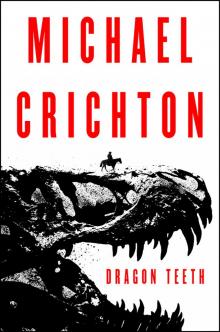 Dragon Teeth
Dragon Teeth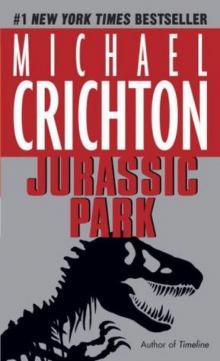 Jurassic Park
Jurassic Park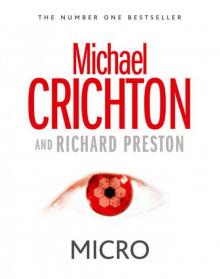 Micro
Micro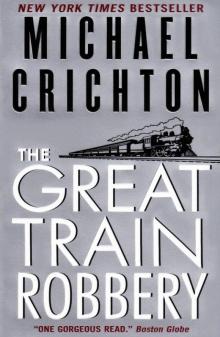 The Great Train Robbery
The Great Train Robbery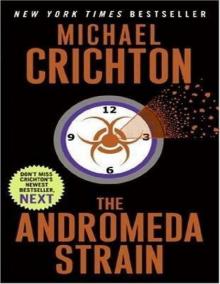 The Andromeda Strain
The Andromeda Strain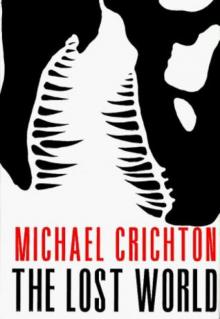 The Lost World
The Lost World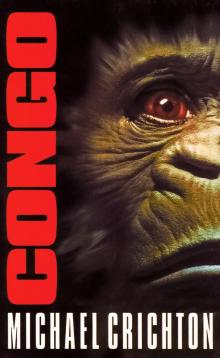 Congo
Congo Travels
Travels Timeline
Timeline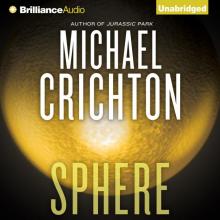 Sphere
Sphere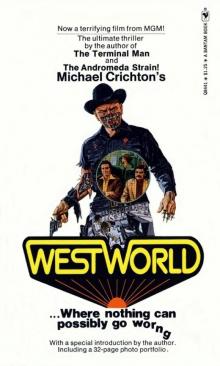 Westworld
Westworld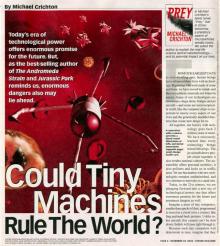 Prey
Prey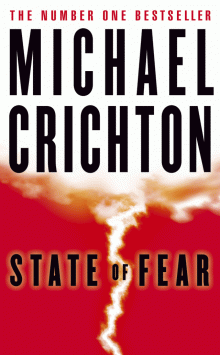 State Of Fear
State Of Fear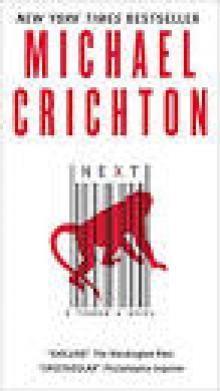 Next
Next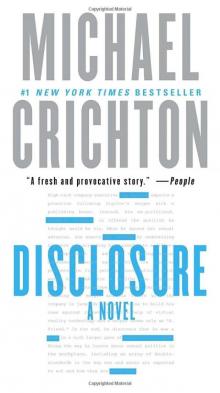 Disclosure
Disclosure Pirate Latitudes
Pirate Latitudes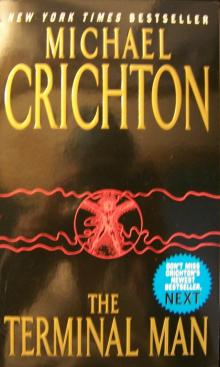 The Terminal Man
The Terminal Man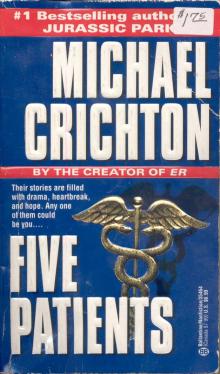 Five Patients
Five Patients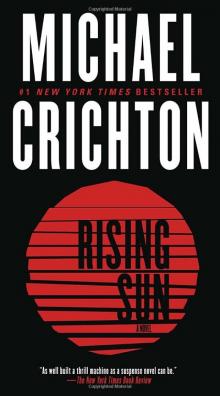 Rising Sun
Rising Sun Binary
Binary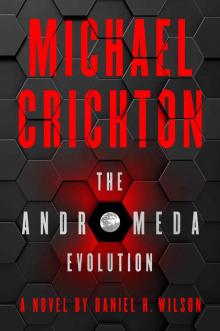 The Andromeda Evolution
The Andromeda Evolution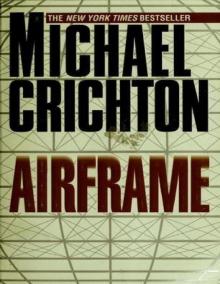 Airframe
Airframe Easy Go
Easy Go Drug of Choice
Drug of Choice Odds On: A Novel
Odds On: A Novel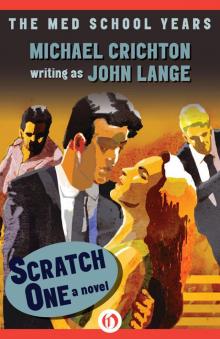 Scratch One
Scratch One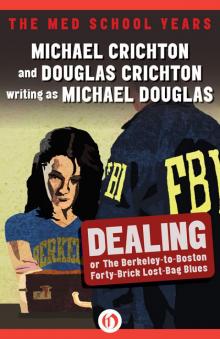 Dealing or The Berkeley-to-Boston Forty-Brick Lost-Bag Blues
Dealing or The Berkeley-to-Boston Forty-Brick Lost-Bag Blues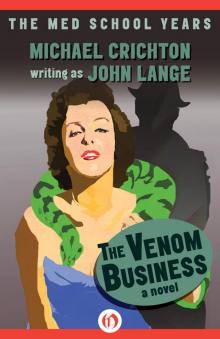 Venom Business
Venom Business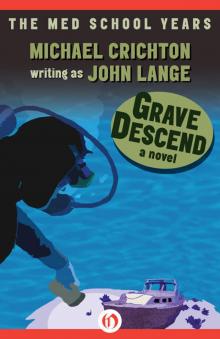 Grave Descend
Grave Descend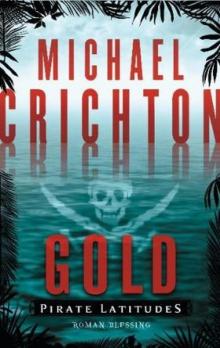 Gold - Pirate Latitudes
Gold - Pirate Latitudes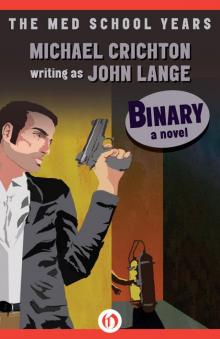 Binary: A Novel
Binary: A Novel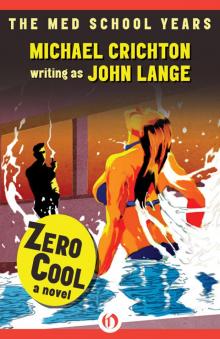 Zero Cool
Zero Cool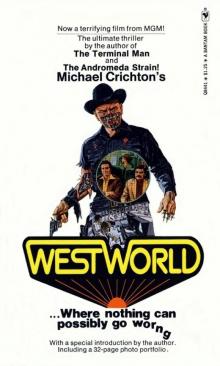 Delos 1 - Westworld
Delos 1 - Westworld